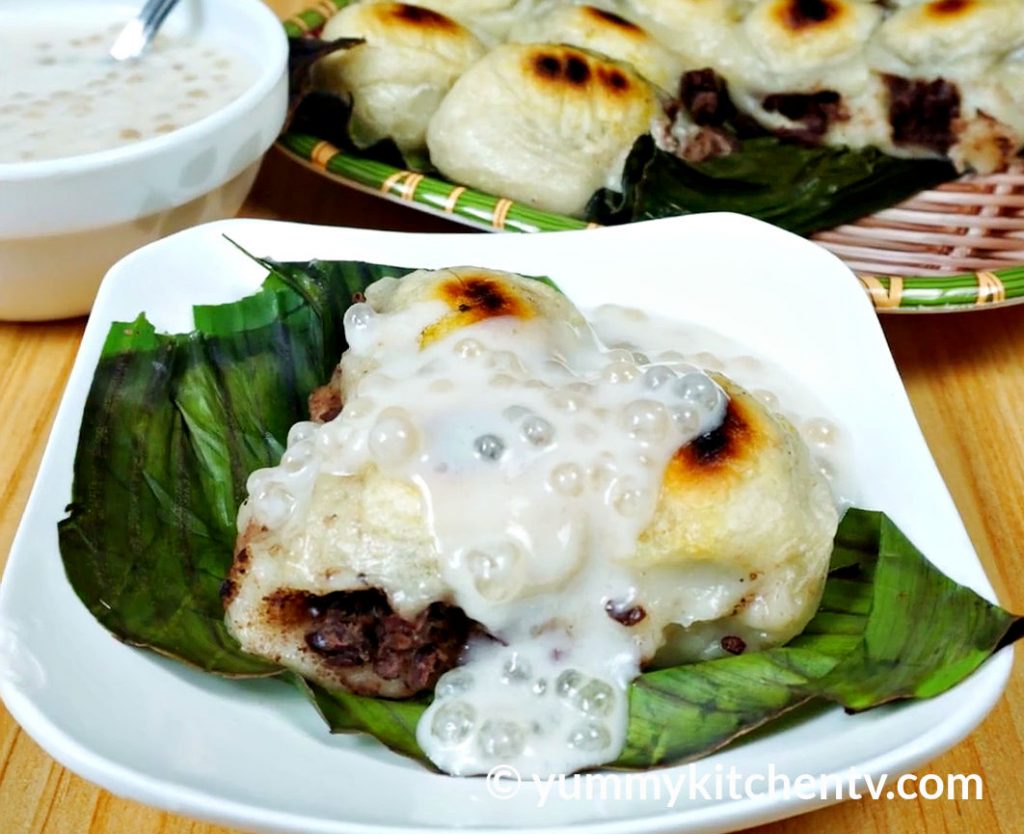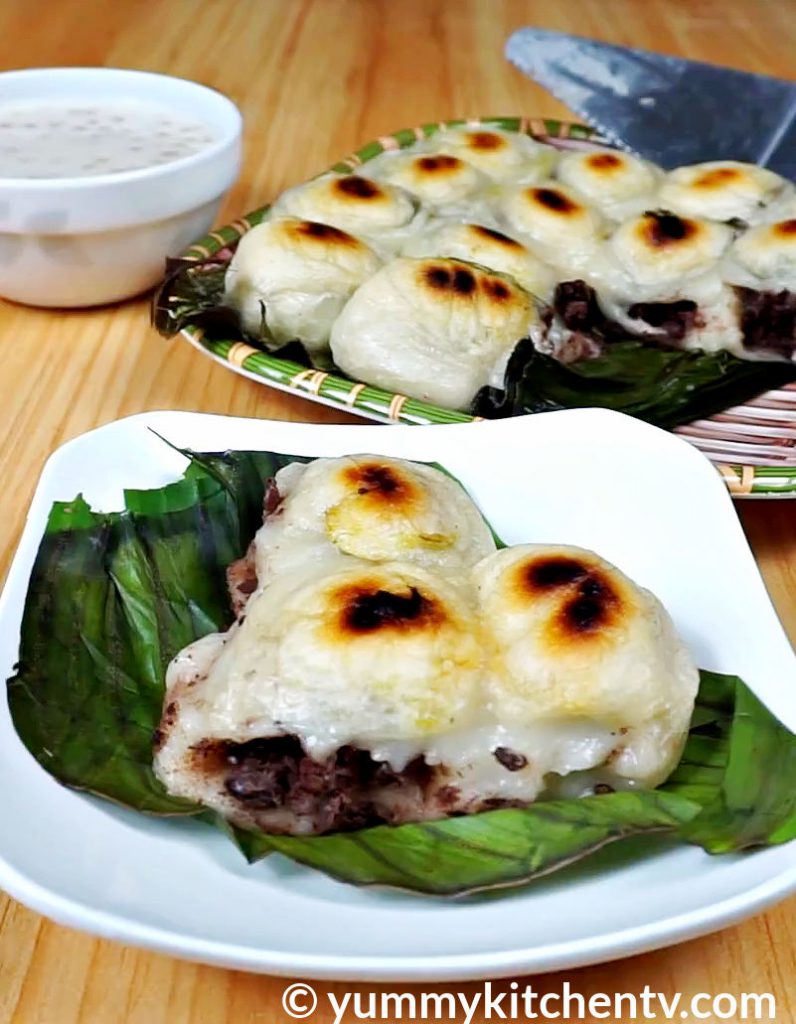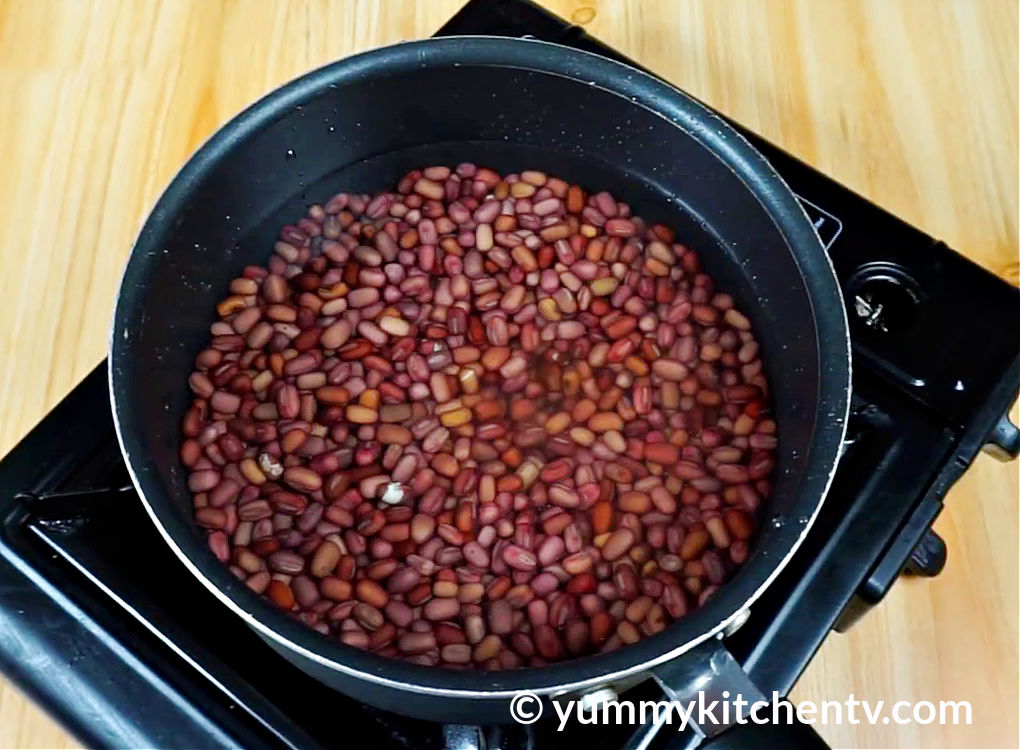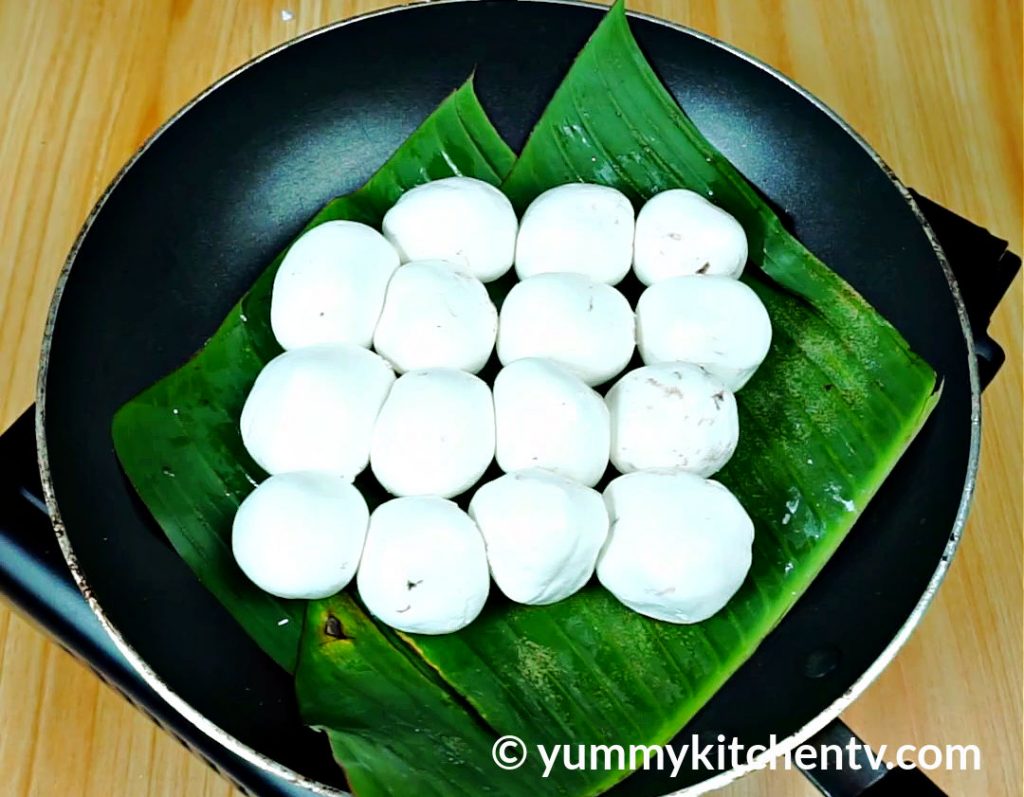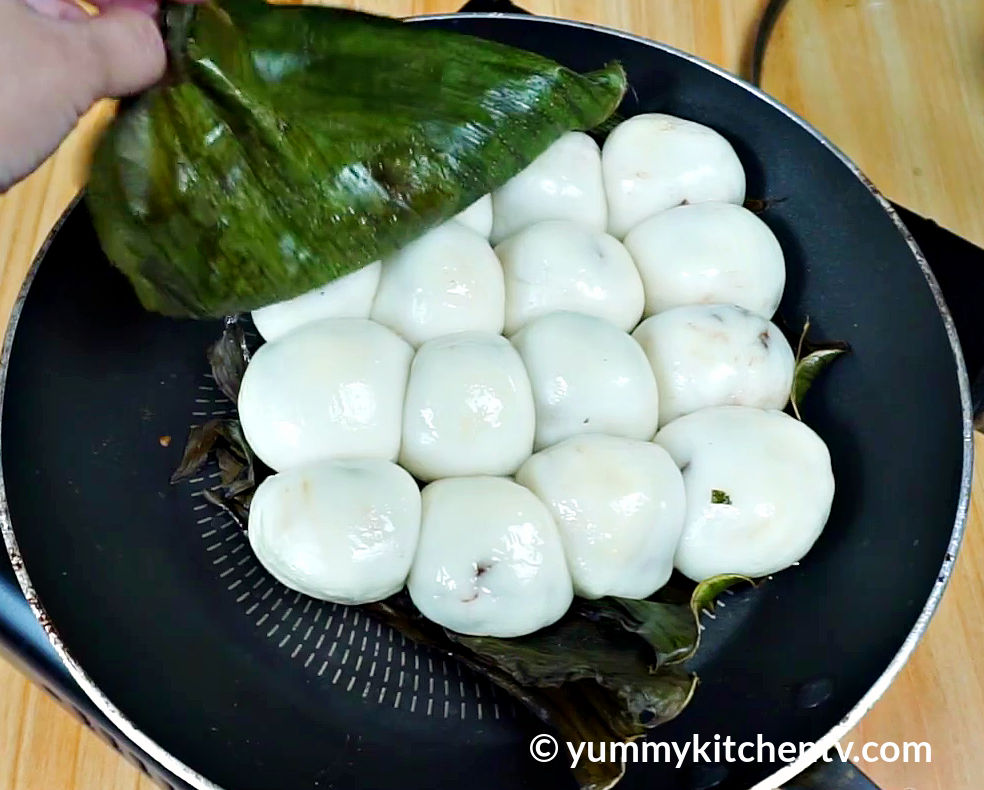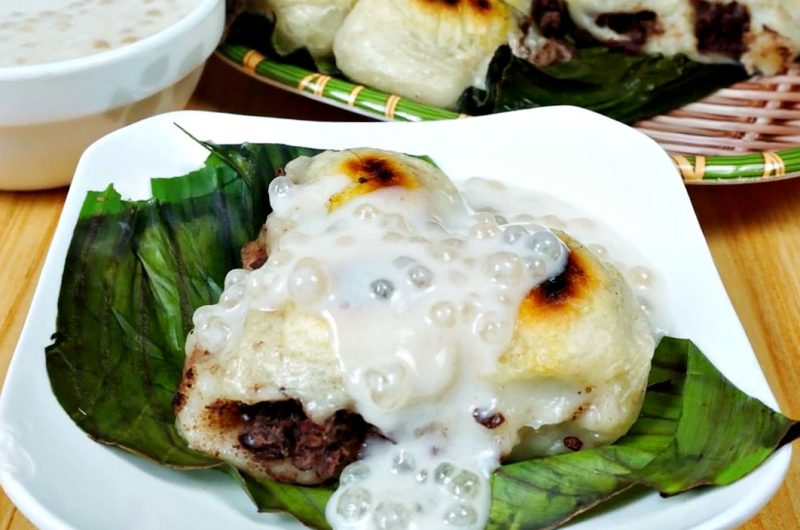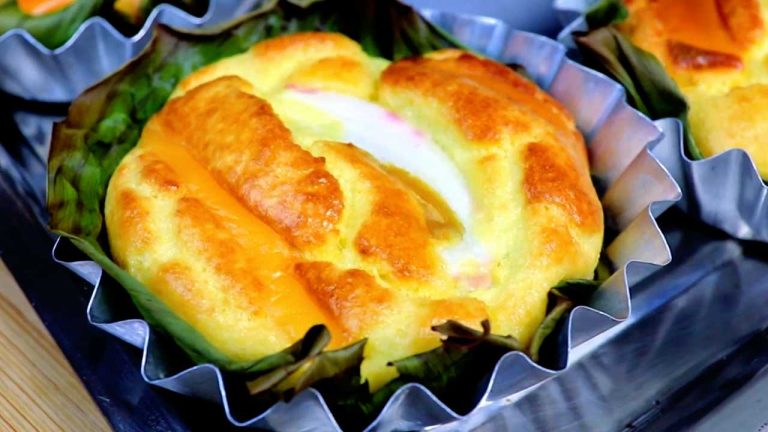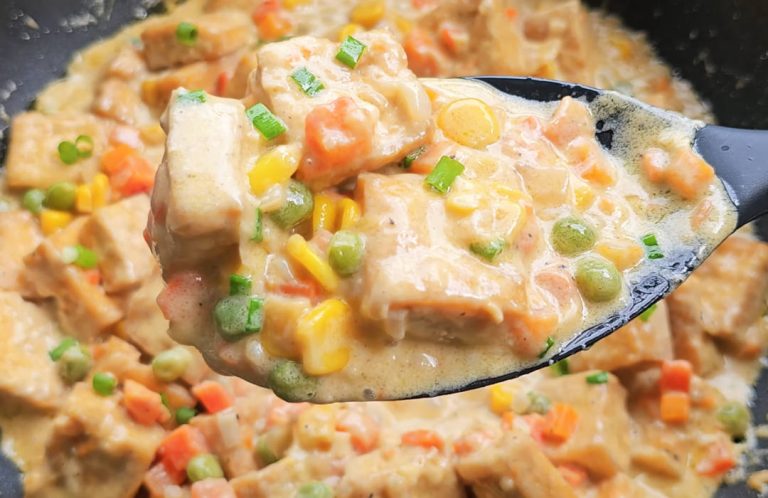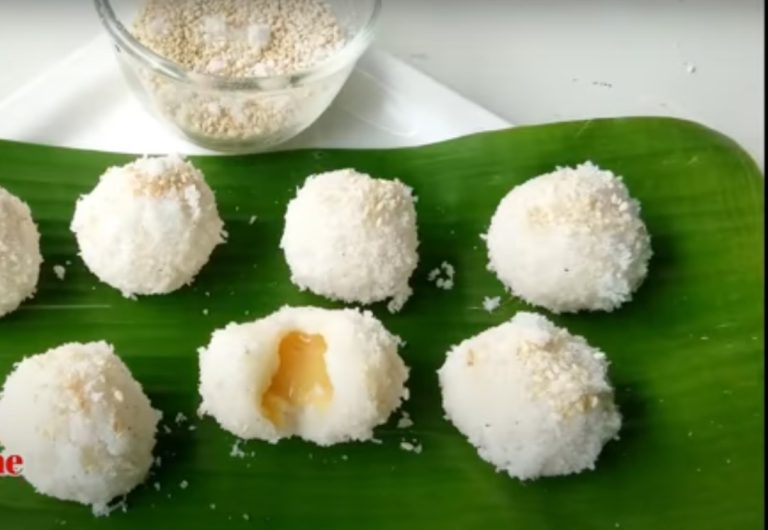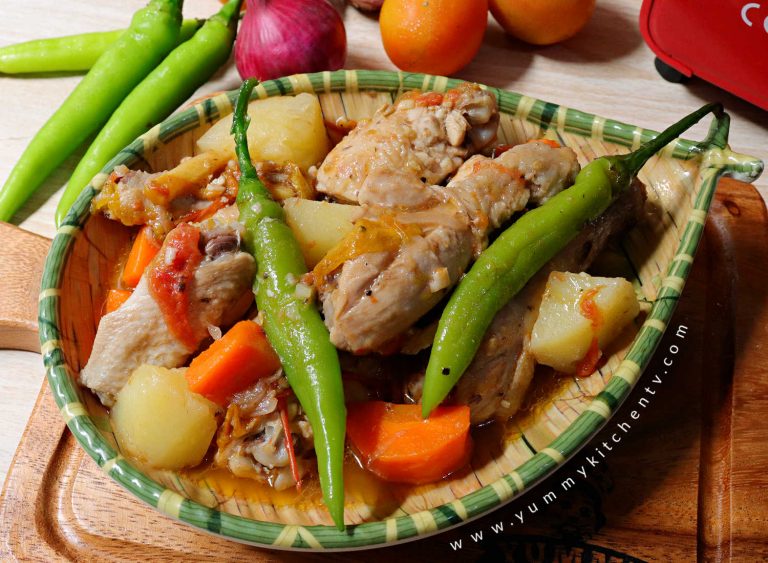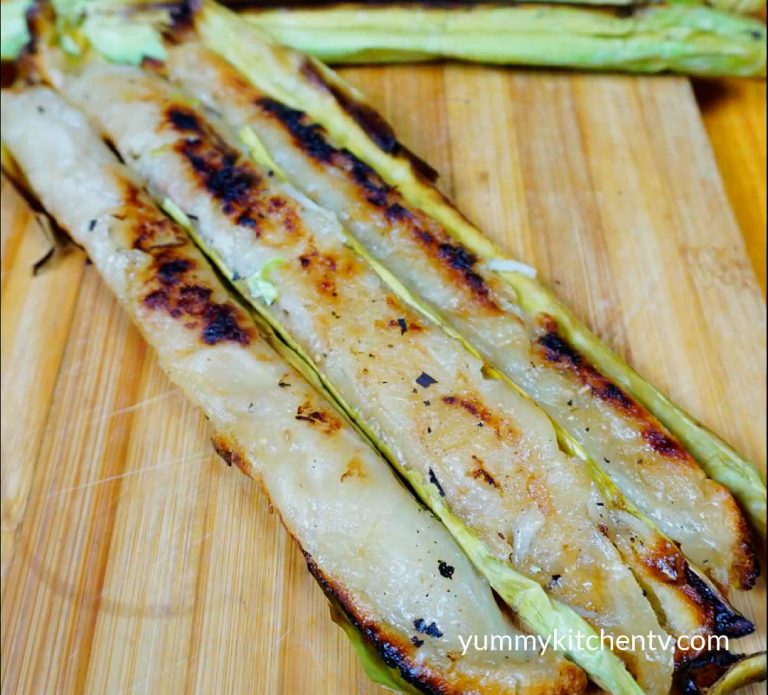Bibingkoy
Bibingkoy is a special Filipino rice cake originated from Cavita, is made by glutanious rice flour, mung beans, sugar, oil and is topped up with a sauce made by coconut milk, sugar, rice flour and cooked tapioca pearls. With this recipe, I will help you on how to cook your very own bibingkoy without baking it in an oven. This recipe is not limited for cooking in a pan only but can also be done in an oven. The recipe is easy and simple to make but will satisfy your cravings.
WHAT IT IS BIBINGKOY?
Apart from the Samala rice cakes, Bibingkoy is a popular cavitenean kakanin. It is a combination of tikoy, ginataan and buchi. It is a signature rice dish originally developed from Cavité, province of Luzon in the Philippines, Calabrazon region. It tasted as tikoy or buchi or ginataan. Filled with red mongo/mung bean paste, glutinous pillow of rice paste served with generous, creamy coconut milk with glutinous balls of rice, jackfruit strips and sago. You will enjoy the best breakfast you’ve ever had while in Cavite. It is so sweet! It is so good!
According to my research Bibingkoy is a legacy from Lola Ika’s Philippine kakanin prior to the Japanese invasion, World War II and was given to her daughter Aling Lolit. Aling Lolit was interested in learning her family recipes at a young age and had helped Lola Ika in the kitchen already. She knows that Aling Lolit’s legacy will continue when her mother dies. Bibingkoy ng Cavite, however, tends to have cousins from other provinces such as the places of Malabon, Pampanga and Navotas. In pampanga it is called as Mochi and in Navotas it is called as Buchi. Malabon called this as Hibok-hibok. Why don’t you try to create my recipe? You’re going to love it, I’m sure.
WHAT IT IS MADE OF?
It is quick and convenient to make bibingkoy. It is made of glutinous rice, sweetened red mung beans and cooked over a pan, rather than frying it like buchi. They baked it in a pugon or furnace oven in an old bibingkoy style and then topped it with a sweetened creamy coconut sauce made from sago (tapioca) and kaong (sugar palms). But I cooked this bibingkoy in a pan for my recipe so it is essentially a no bake technique. Glutinous rice flour, red mung bean, sugar, water, coconut milk, and sago (tapioca) for topping are the essential ingredients in making my bibingkoy recipe. There are three portions of making my bibingkoy, the fillings, the dough and the toppings.
RED BEAN FILLING
I began with the fillings first. I have soaked the red mung beans for 8 hours or you can soak them overnight in a bowl of water. This is going to help soften our red mung beans. After 8 hours, I drain the water that was used during the soaking of the red mung bean and transfer it to a pot with 3 cups of water and cook it. Cook the red mung bean until the water has fully evaporated and tender. Turn the fire off and mash the red mug bean. At this time, I’m going to add white sugar while continuing to mash the red mung bean. In this process, white sugar is easily mixed with our red mung beans. Transfer the sweetened mung beans in a bowl and let it cool for a while. If it’s cool enough to handle the sweetened mung beans, place a spoonful of mung beans and form a ball and set aside.
THE DOUGH
We’re done making our fillings now. Let’s make the bibingkoy dough. Place the flour of the glutinous rice in a bowl and add the remaining 1 1⁄2 cup of water. Combine well until the dough is formed. At this time, the sweetened mung beans will be placed in the center of the glutinous dough as the fillings. Get a piece of the dough and form it in the shape of a ball, then flatten it. Place the sweetened mung beans in the center and then seal it into a ball shape. When all the dough has been filled with mung bean fillings, prepare your pan for cooking.
COOKING BIBINGKOY WITHOUT OVEN
Put the banana leaves in the pan. Make sure you brush the oil on the banana leaves to avoid the bibingkoy from sticking to the leaves. Place all the bibingkoys on top of the banana leaves, then cover the top with another banana leaf. Make sure again the banana leaves are brushed with oil, then cover the pan. Cook the bibingkoy for about 20 minutes. Once it is already cooked, transfer the bibingkoy together with the banana leaves in a plate and set aside. Make sure the banana leaves are still in the bibingkoy.
THE TAPIOCA TOPPINGS
Let’s make the toppings, finally. It’s really easy to make these toppings. In a pan, mix the coconut milk and the cooked sago (tapioca) and stir well. Add the remaining sugar. You may add more sugar if you want it to be sweeter. Add the remaining glutinous flour to the coconut milk mixture and stir continuously. Continue to stir the milk for about 10 minutes while simmering. When the texture of the milk is already thickened and smooth, turn off the heat and transfer the milk mixture to the bowl. In assembling, slice a portion of bibingkoy and place it in a salad plate, then pour the milk mixture over the bibingkoy. Feel free to add some strips of jackfruit or sugar palms (kaong). Now your bibingkoy is ready to serve. Enjoy!


